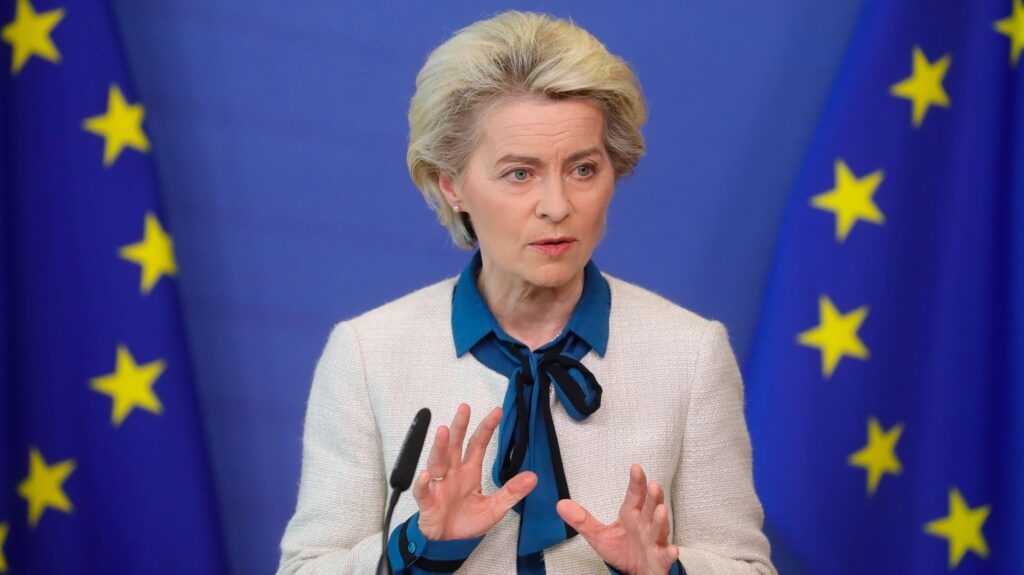The EC has prepared a roadmap for a complete rejection of Russian energy resources by the end of 2027, including gas and uranium

The European Commission has prepared a roadmap for a complete phase-out of Russian energy resources by the end of 2027, including oil, gas and uranium, according to a statement on the EC website.
According to the roadmap, EU countries must suspend spot contracts and new long-term contracts for the purchase of any gas from Russia by the end of 2025, including liquefied natural gas (LNG). A complete cessation of Russian gas imports should occur by the end of 2027.
At the same time, the EC is going to organize monitoring of the turnover of Russian gas on EU markets while it is still being purchased. And also to strengthen control over the actions of the "shadow" fleet.
At the same time, the European Commission proposes to limit the conclusion of new contracts for the supply of uranium from Russia by introducing special tax charges. This concerns contracts agreed with the European Atomic Energy Community (Euratom), which includes 27 European countries, including Switzerland. Today, Euratom is the only public organization formally independent from the EU.
By the end of 2025, EU countries will prepare national plans defining how they will facilitate the gradual transition away from Russian energy imports.
The decision has already drawn criticism from Hungary and Slovakia, which are still actively buying Russian oil and gas. Hungary, where Rosatom is also building a new nuclear power plant, Paks-2, will suffer the most.
As reported by Politico, the European Commissioner for Health from Hungary, Olivér Várhelyi, has already initiated a procedural objection to the EU roadmap.
Slovakian Prime Minister Robert Fico called the roadmap an “absolutely unfriendly” plan towards Bratislava. “This is an ideological decision, it has nothing to do with common sense,” he said.
The Slovak Prime Minister recalled that the state gas company SPP of Slovakia has contracts valid until 2034. These contracts are concluded on a “take or pay” basis, meaning that the client must pay even if he does not consume gas. In addition, R. Fico added that “by cutting off Russian gas, the country will become dependent on someone else, primarily on liquefied gas from the USA.”
Meanwhile, European Commission President Ursula von der Leyen said that ending imports of Russian energy would be in the fundamental security interests of the European Union.
Russia's Rosatom has called on its European partners to distance themselves from artificially imposed restrictions. "We are firmly convinced that cooperation in the nuclear fuel cycle, which is of decisive importance for the global development of nuclear energy, should be distanced from artificially imposed restrictions on market participants," the company emphasized.
“In our opinion, the proposed restrictions will not contribute to ensuring the safety, stability and reliability of supplies of uranium resources necessary for the development of nuclear energy throughout the world,” Rosatom noted.
In the current circumstances, experts note, Hungary and Slovakia will have to seek an exclusion from the roadmap. “Even taking into account the increased availability and cheaper supplies of LNG to EU markets after 2026, the logistics of Russian pipeline gas supplies via the Turkish Stream will be more profitable and cheaper for Hungary and Slovakia. LNG will have to be obtained from third countries, such as Germany, Greece or Italy, which implies additional costs,” said Alexey Belogoryev, Director of Research and Development at the Institute of Energy and Finance.
The expert believes that a number of other countries, such as Greece, Italy and Austria, remain against a total refusal to purchase Russian gas and in the future expect to resume cooperation in the event of a successful peaceful settlement of the Ukrainian conflict, but they do not openly advertise this and will not make loud political statements in favor of maintaining Russian gas supplies.
energypolicy





